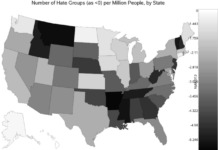On Tuesday March 24, 2014, cosponsors Mark Pocan (D-WI) and Thomas Massie (R-KY) introduced a bill aimed at restoring privacy protections. The Surveillance State Repeal Act (H.R. 1466) is a complete repeal of both the Patriot Act and the FISA court amendments which followed. The bill?faces?stiff resistance in Congress due to its broad scope and direct approach. Last year’s USA Freedom Act fell to pro-surveillance push-back in the senate despite offering little more than cosmetic changes to surveillance standards.
The bipartisan duo hope to unify reform supporters behind repealing the programs and putting privacy protections in place. The nine page Surveillance State Repeal Act?reads like a wish list for the privacy conscious. Here are four reasons to get excited.

1. Welcome back warrants.
The bill includes two provisions specifically requiring warrants when collecting data on citizens.? Section 6 forces federal agencies to obtain a warrant when collecting information under Title VII of the Foreign Intelligence Surveillance Act of 1978. Section 11 disallows the acquisition of evidence from United States residents under Executive Order 12333 without first obtaining a warrant.
2. Bye, bye back doors
Tech companies and consumers alike should be pumped about the provision in section 7. The perception that the NSA added back doors to popular products, such as smart phones and routers, killed consumer confidence driving manufacturers to include encryption software by default. Section 7 prohibits the federal government from forcing companies to provide a way to bypass privacy technology or encryption.
3. Whistleblowers get protection.
Sections 9 and 10 provide much needed protections for conscientious members of the intelligence community to report instances of fraud, waste, and abuse of power. Section 9 provides a way for concerned individuals to submit reports documenting any violations to the Comptroller General and ensures investigation by either the Senate or House Intelligence Committee. Section 10 prohibits interfering in any way with either the filing of a report or the ensuing investigation. These provisions give individuals a way to act in accordance with their morals without fearing reprisal or disclosing potentially sensitive information to outside actors.
4. Public pressure can protect privacy.
Considering the amount of backlash previous attempts at reform saw, this bill seems destined to die in Congress. The only way to get meaningful measures enacted is through public support. The fight for civil liberties and individual rights in the digital age is never going to be easy, but progress is possible. Persistent public pressure forced the FCC?to reclassify broadband internet.?The implications of this bill are far greater than even the net neutrality. Internet users must show the same solidarity and persistence that won over the FCC. Share away and spread the word.




